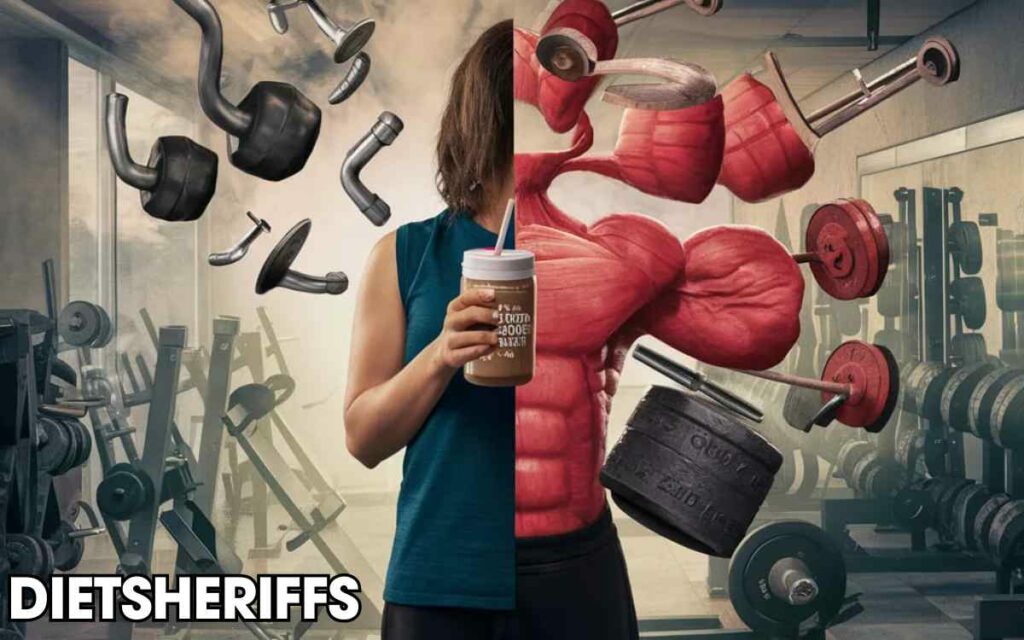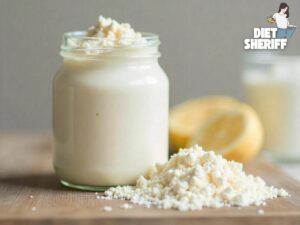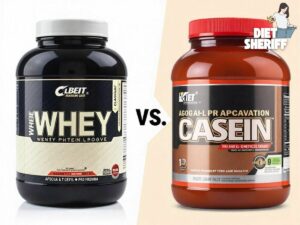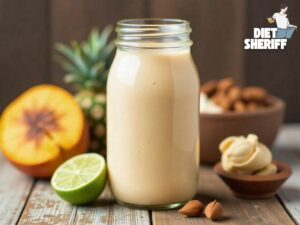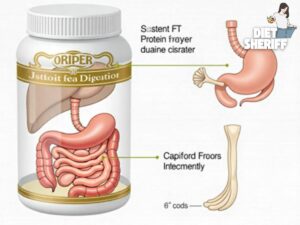Protein shakes may appear to be a simple method of obtaining the recommended daily intake of this vital nutrient. But what happens if you drink protein shakes without working out?
You may gain weight or not build enough muscle if you don’t exercise but drink protein shakes since your body won’t be able to use the extra protein in shakes.
In this article, I am going to discuss it thoroughly.
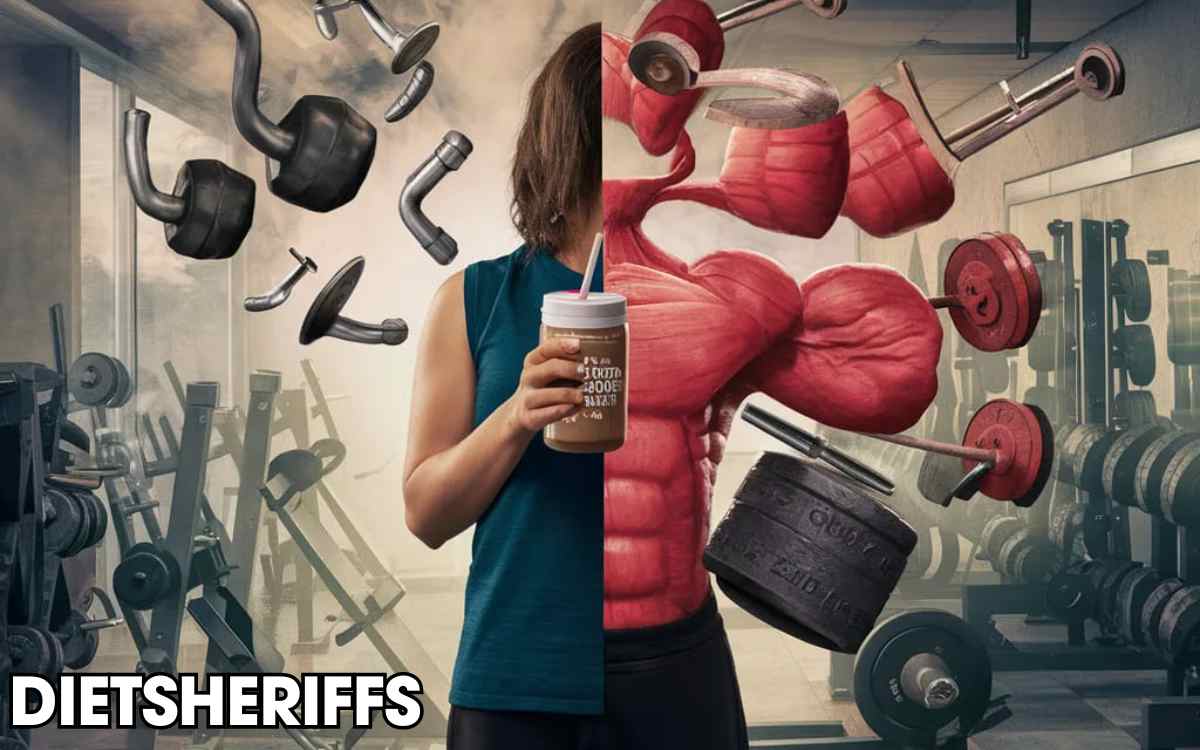
How Does Protein Shake Work?
Before searching for what happens if you drink protein shakes without working out, let’s have a look at how protein shakes work.
Protein shakes can aid in weight loss and the development of a toned, slender body in the following 4 ways:
- Provides a source of concentrated protein
Protein smoothies give you a concentrated dosage of protein, which helps you achieve your bodybuilding or weight loss goals. Amino acids, the smaller components that make up proteins, are the building blocks of tissues, hormones, and enzymes.
- Quickly absorbs
Comparatively speaking, protein shakes are easier to digest, absorb, and use than other protein sources like meat or legumes.
Related Articles: Organic Protein Shake Benefits: Why Go Organic for Your Nutrition?
- Growth and regeneration of muscles
Protein drinks help build and repair muscles by supplying the necessary amino acids for the production of muscle proteins.
- Controls hunger
Protein is highly satiating. It can help regulate your appetite and lower your overall calorie intake by making you feel fuller for longer.
Related Articles: The Effects of Protein Powder on Digestion – 10 Facts
What Happens if You Drink Protein Shakes Without Working Out?
You may have seen numerous fitness commercials suggesting that protein shakes will help you lose weight or build the muscles of your dreams. However, what happens if you drink protein shakes without working out? Let’s find out.
- Weight Gain
You may consume more calories than your body requires when you consume protein shakes without exercising. Over time, consuming these extra calories may result in weight gain.
Never forget that maintaining the proper balance between calories burned and calories ingested is just as important as consuming enough protein.
Protein shakes can help you gain muscle and feel fuller, but they are most effective when combined with regular exercise to make sure your body uses the extra calories you consume and keeps a healthy balance.
- Impact on energy and metabolism
Drinking protein shakes without engaging in physical activity can disrupt your body’s energy expenditure and affect your mood. Your metabolism expends energy moving and breaking down meals. Exercise typically keeps this process dynamic and effective.
Thus, if all you’re eating is protein shakes and you’re not exercising, your metabolism will be negatively impacted.
This raises the possibility that your metabolism will slow down and your body will have a tougher time burning calories. This could cause you to feel as though you have a low battery and become less energized.
- Nutrient Imbalance
A diet that excludes other food groups and only consumes protein shakes may leave you deficient in important nutrients.
To keep healthy, our bodies require a variety of nutrients, such as vitamins and minerals, from a variety of foods. Although protein shakes help build muscle, they don’t contain all the nutrients our bodies require.
Relying solely on them could result in a lack of vital nutrients. It’s like only having a portion of what the body needs to function properly. It’s critical to have a diverse diet to ensure that you receive all the nutrients that are necessary for optimal health.
Related Articles: Premier Protein Powder vs Ready-to-Drink: Which is Right for You?
- Digestive Issue
Digestive issues may arise from eating a high-protein diet without any physical activity. An imbalance resulting from an excess of protein and insufficient motility can cause discomfort and digestive problems.
To maintain a healthy digestive system, your body requires the proper balance of protein and vigorous physical activity. An imbalance in this area could cause problems with how your body breaks down food.
To keep a healthy and functional digestive system, it is therefore essential to pay heed to both how much protein you eat and to remain active.
- Health Risks
Eating a high-protein diet may put you at risk for some health disorders, whether or whether you maintain a regular fitness regimen.
According to the PCRM, eating too much protein can lead to osteoporosis, kidney problems, cancer, and calcium stones.
Protein shakes and supplements don’t provide the same range or quality of nutrients as entire foods, thus consuming too much protein may also be linked to nutrient deficiencies, according to certified dietitian Katherine Zeratsky of Mayo Clinic.
- Adaptable and customizable
Choose from plant-based protein sources like soy, pea protein, or your favorite protein powder, like whey. You may customize your protein shakes by adding other components including fruits, vegetables, nuts, seeds, and leafy greens.
This is a simple method to supplement your diet with various vitamins, minerals, antioxidants, fiber, and healthy fats.
Related Articles: How to Mix Protein Powders without Clumping?
- An easy substitute for meals
If you add extra components to your protein shakes to increase their nutritional content, you can use them as a meal replacement.
Consuming protein shakes can help you stay healthy overall because protein is essential for several physiological functions, including the creation of enzymes, hormone regulation, and immunological function.
- Nutritional reinforcement
Protein shakes might fill the gap if you’ve been finding it difficult to get enough protein from whole foods each day.
Advantages of Drinking Protein Shakes in Combination with Exercise
When incorporated into a well-balanced diet and lifestyle, protein shakes provide numerous health advantages to the body.
- Muscle Support
Protein is necessary for muscle growth and repair. If you regularly exercise or perform strength training, protein shakes offer a quick and effective approach to improve your protein intake and maintain the health of your muscles.
- Weight Control
Because of its satiating properties, protein helps you feel fuller for longer. By sating your hunger and decreasing the chance of overindulging, protein drinks can aid in weight management diet sheriff.
- Easy accessibility
Protein smoothies are an easy way to get high-quality protein; they’re especially helpful if you’re a busy person or find it difficult to make meals high in protein. They provide a quick and simple way to satisfy dietary requirements.
- Timing of Nutrients
After exercise, consuming protein drinks can help with muscle rehabilitation. Amino acids can reach the muscles more quickly thanks to the quick absorption of protein, which aids in muscle regeneration.
- Density of Nutrients
Protein shakes are generally higher in nutrients because they are fortified with important vitamins and minerals. This can help maintain general health and help meet daily nutrient requirements.
- Concentration of Amino Acids
Amino acids, the building blocks of proteins, are essential for many body processes. Protein shakes offer a concentrated amount of critical amino acids required for multiple physiological activities, especially those that contain complete proteins.
Requirements of Protein Intake Without Sports Work
Your requirements for protein are lower if you don’t exercise frequently than for those who do. Along with lipids and carbohydrates, protein is essential for both muscle growth and maintenance. To prevent deficiencies, the German Nutrition Society recommends 0.8 g of protein per kg of body weight for inactive persons.
Yet, some people could not get enough protein because of an unbalanced diet or limited dietary practices. Under such circumstances, protein smoothies can be a practical means of increasing protein consumption.
On the other hand, your protein needs are greater if you exercise often or perform weight training. For the best possible muscle building, you need between 1.2 and 1.6 g of protein per kg of body weight.
Explore Also:
Creativehouseblog
Gigasecurehome
Mycleanseplan
What Happens if You Drink Protein Shakes Without Working Out: FAQs?
Is it harmful to use protein powder if you don’t exercise?
According to the physicians, it is not advisable to combine protein supplements with no exercise at all.
What signs indicate that the body has an excess of protein?
headaches, exhaustion, nausea, diarrhea, dehydration, and more.
If my only exercise is aerobic, should I also drink protein shakes?
By giving your body the nutrition, it needs to recover more quickly after a cardio workout, a high-quality protein powder can help you get the most out of it.
Should you consume protein shakes during leisure periods?
Your unique fitness objectives and nutritional habits will determine whether or not you can consume protein drinks on the days when you don’t work out.
Can I substitute a meal with a protein shake?
Meals are not intended to be substituted by protein shakes.
References
https://welltech.com/content/can-you-drink-protein-shakes-without-working-out
https://greenpeakslabs.com/blogs/news/can-i-drink-a-protein-shake-without-working-out
https://notrocketscience.in/blogs/news/can-i-drink-protein-shakes-without-working-out
https://invigor8.com/blogs/fitness/can-you-drink-protein-shakes-without-working-out
https://www.vivolife.co.uk/blogs/news/can-you-drink-protein-shakes-without-working-out

